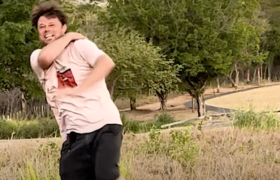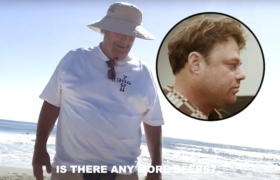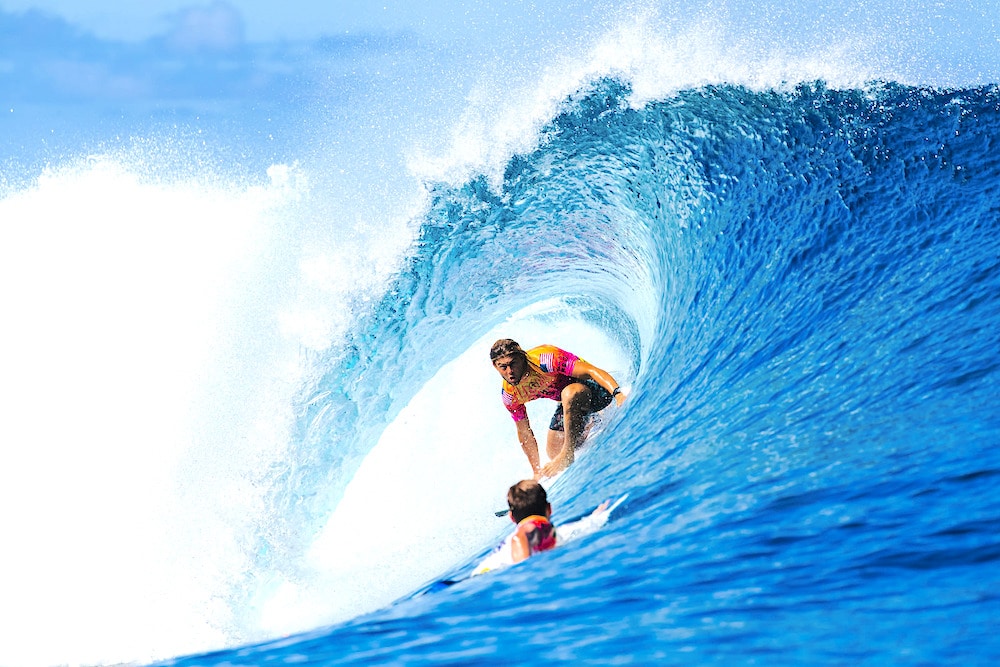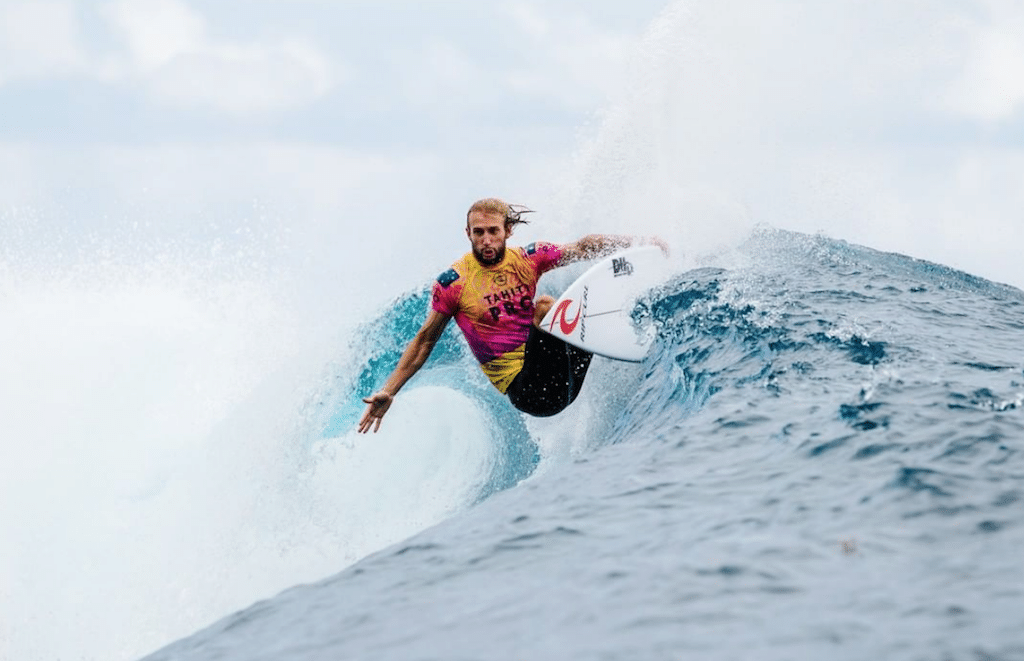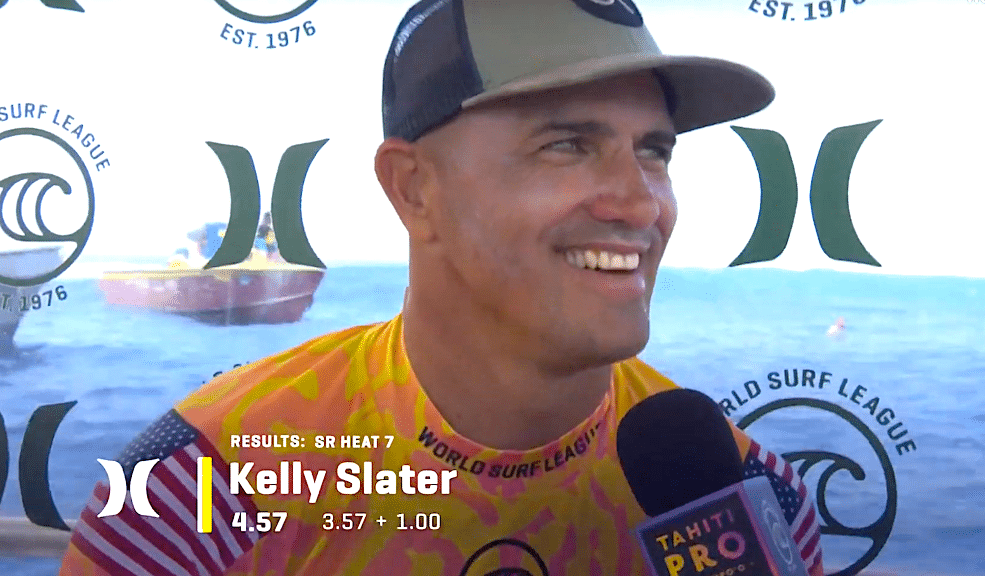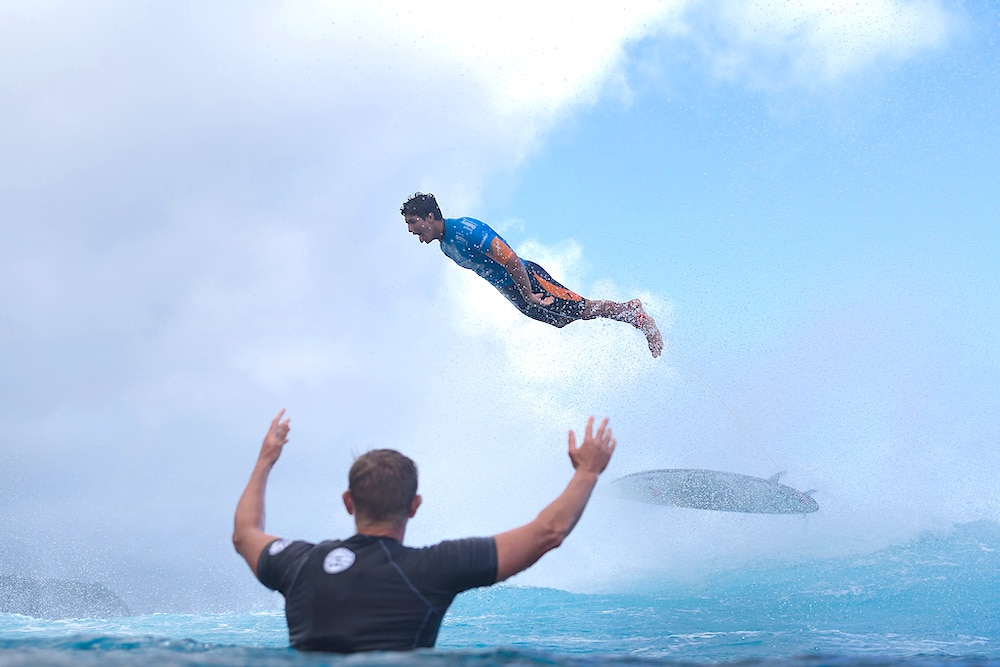Why the late, great, wild, bad and mad Hawaiian surfer Marvin Foster is a Tarantino movie waiting to happen…
(Editor’s note: If you’re a subscriber to Matt Warshaw’s Encyclopedia of Surfing, which costs three dollars a month with a twenty percent discount if you take it over a year, your Sundays will be gifted with a long email from Warshaw himself. Today’s piece is about the Hawaiian surfer Marvin Foster, who dazzled at Pipe in the eighties and nineties, ran various criminal rackets, competed in the 1995 Eddie while on the run from the cops and who hanged himself in 2010, aged 49. A man of complexity and worth investigating.)
I posted this clip of Marvin Foster a few days back said something about how Foster is a “Quentin Tarantino movie waiting to happen.”
Marvin Foster from ENCYCLOPEDIA of SURFING on Vimeo.
Have you seen Tarantino’s latest, Once Upon a Time in Hollywood? If so, are you feeling maybe a little pulled in two directions?
I agree with Richard Brody that Once Upon a Time has its macho head stuffed way up its own ass. Yet I melted for the performances, the sets, the music, and especially the comedy. When I think of Marvin Foster by way of Tarantino, however, it’s more in the style of Django Unchained or Inglorious Basterds, and what I mean by that is the violence and assorted other bad behaviors committed by our anti-hero needs that Django-like connection to a broader — nay, overwhelming — injustice.
For the moment let’s just say that Marvin had a good side, a big heart, was friendly at times to people he didn’t know and talked openly and often about his love for family — but he also crossed a lot of lines, hurt a lot of people, and at the very least was a heavy and often threatening surf world presence.
Hold that thought.
It would be somewhere between hard and impossible to catalog all the bad choices Marvin Foster made in his relatively short life. You’ll find a few specifics near the end of this post, and Foster himself weighs in here. For the moment let’s just say that Marvin had a good side, a big heart, was friendly at times to people he didn’t know and talked openly and often about his love for family — but he also crossed a lot of lines, hurt a lot of people, and at the very least was a heavy and often threatening surf world presence.
(Again, I don’t have at hand or want to seek out the particulars of Foster’s bad actions, and will leave off by saying just that Kai “Borg” Garcia, possibly the heaviest of the surf-world heavies, called Foster “one of the toughest men to ever wander the North Shore.”)
So for Tarantino, or the person watching a Tarantino film, the question is: How far are you willing to go in terms of allowing history to mitigate a person’s crimes, flaws, and moral failings? Or more to the point: How damaging was it for Marvin to grow up poor and dark-skinned in Hawaii during the 1960s and ’70s?
Since we’re being cinematic and historical, picture this.
It is 1909 on the Waikiki beachfront. Before us is a hot young gun with seven vowels and two apostrophes in his last name, the Marvin Foster of the new century, eating lunch after a surf and minding his business when somebody walks up and drops this magazine article in his lap.
He reads to the bottom of the page. “The white man and boy are doing much in Hawaii to develop the art of surf-riding . . . and at the recent surfing carnivals in honor of the visits of the American battleship fleet, practically every prize offered for those most expert in Hawaiian water sports were won by white boys and girls, who have only recently mastered the art that was for so long believed to be possible of acquirement only by the native-born dark-skinned Hawaiian.”
Our boy shakes his head, hands the magazine back, tosses his board into the banyan tree for safekeeping, heads home to find out a Mainland newcomer just paid down his uncle’s delinquent property tax bill and legally snatched up the deed to his family’s one acre-plot.
Have we mitigated yet? Getting closer?
“Why do I feel like stomping the haole? Well, look at my side of things. Suppose I came over to your house and said you weren’t dressing right, you weren’t living right, and this and that. You’d get mad and sock me too. It’s a lot deeper, I guess, but that’s the way we feel.” Unnamed Hawaiian.
One more example, from a 1969 issue of SURFER, and this is one that really stuck with me as a kid, I think because the violence was delivered in such a calm voice. “Haole Go Home” was written by an unnamed Hawaiian.
Here’s the condensed version:
Why do I feel like stomping the haole? Well, look at my side of things. Suppose I came over to your house and said you weren’t dressing right, you weren’t living right, and this and that. You’d get mad and sock me too. It’s a lot deeper, I guess, but that’s the way we feel. Captain Cook and the missionaries that followed taught us that we were sinners. They brought the word of God, but I don’t think God had this in mind. This rape of Hawaii! It makes my blood boil when I see all the hotels and stores, all the ships in our harbors, servicemen on our streets and tourists jamming up everything. Till a few years ago, we could still get away from all of this by going surfing. Now that’s even taken over by the haole. So once in a while when I get a few good blasts of beer going, I get to thinking of all of these things, and some haole acts up; well, I just bust him one good one, and I feel a little better.
In terms of letting Marvin off the hook, no, I still don’t think we’re in Django territory. But let’s acknowledge that he was not acting in a void, and that to fully understand how and why Marvin got bent you’ll have to put on a 12-bolt bronze helmet and say goodbye to the sun cause the dive is going to be deep, long, and dark.
Meanwhile, through all that, possibly because of all that, Foster surfed like a big cat running down a gazelle while listening to Metallica.
